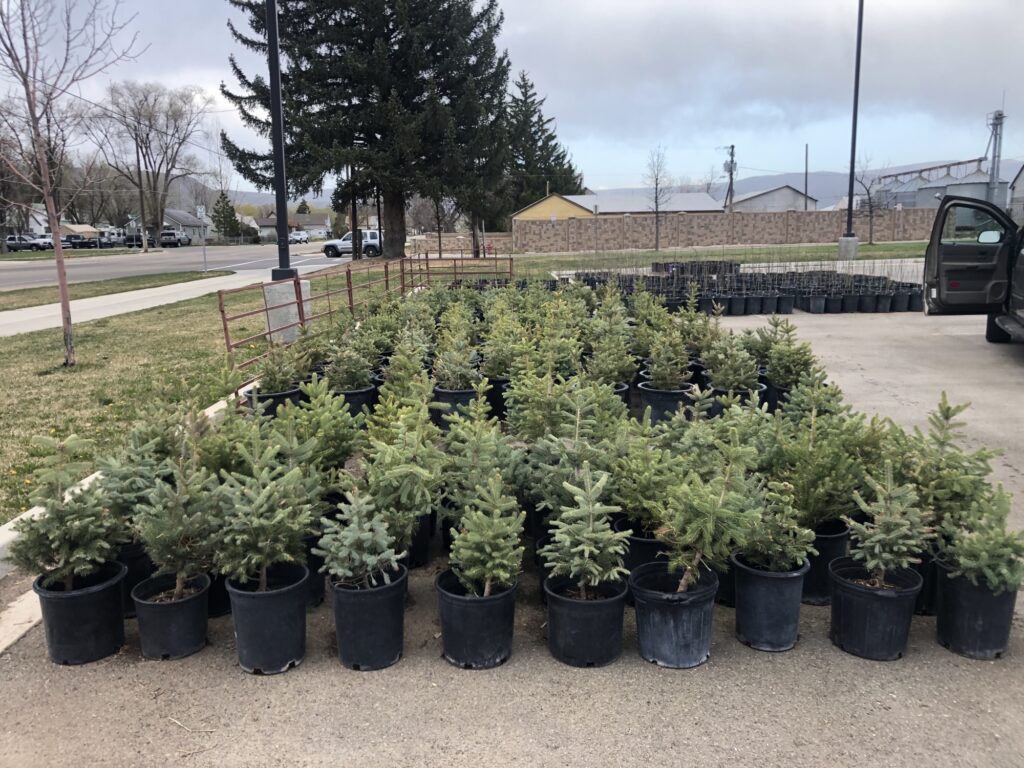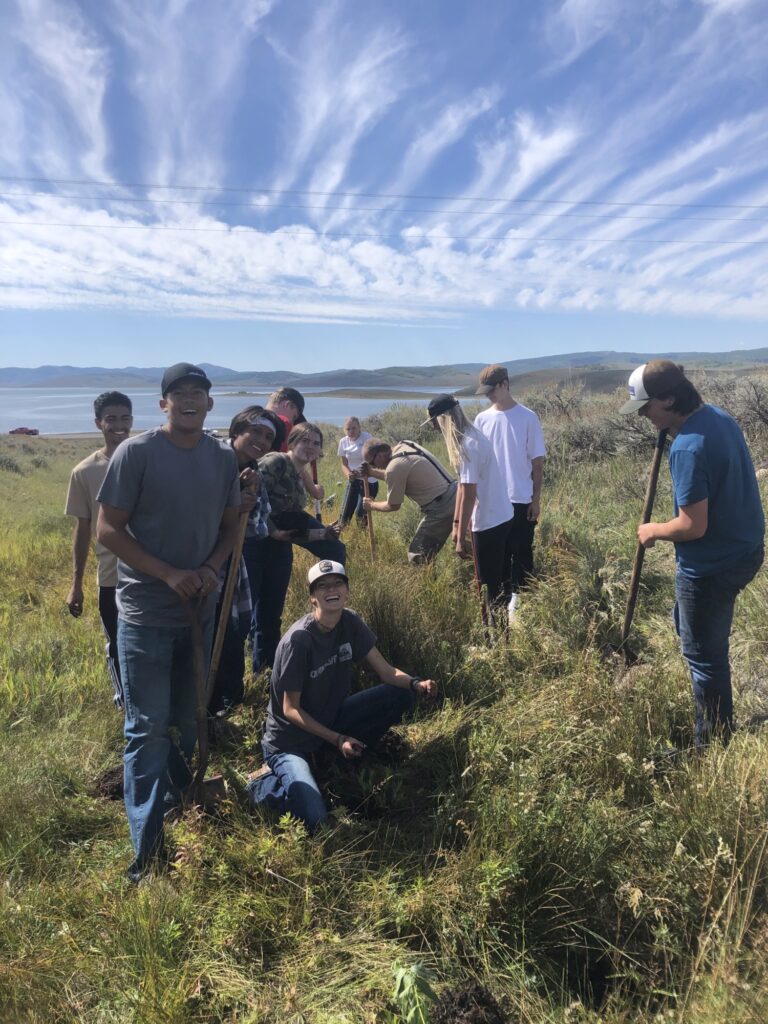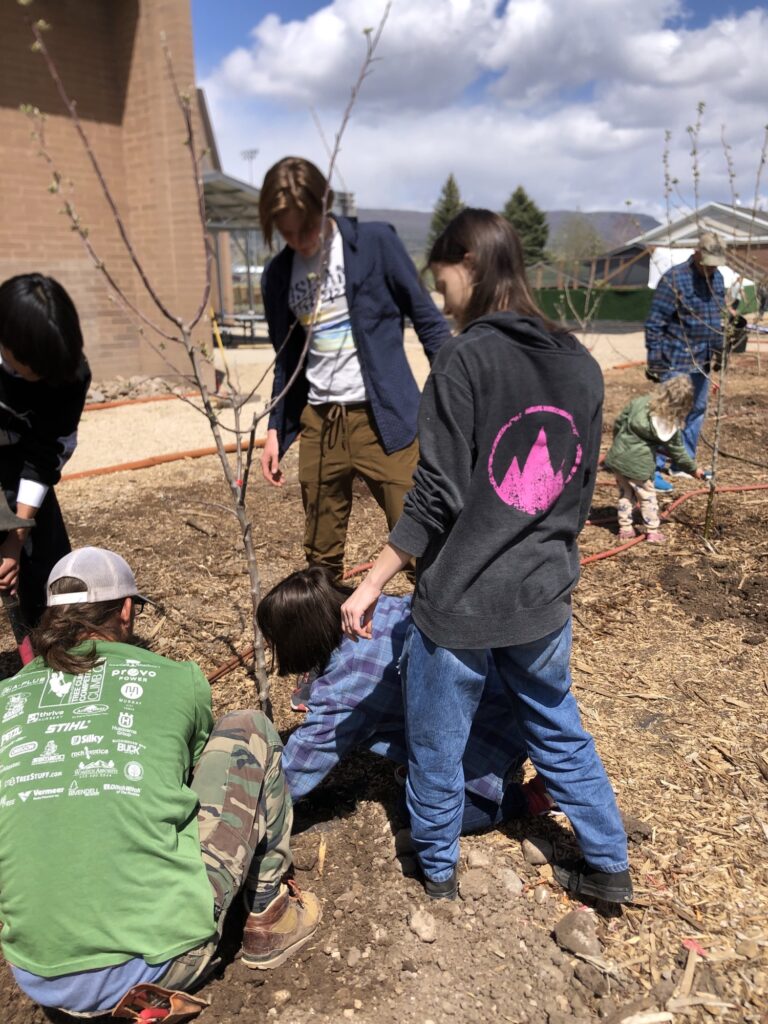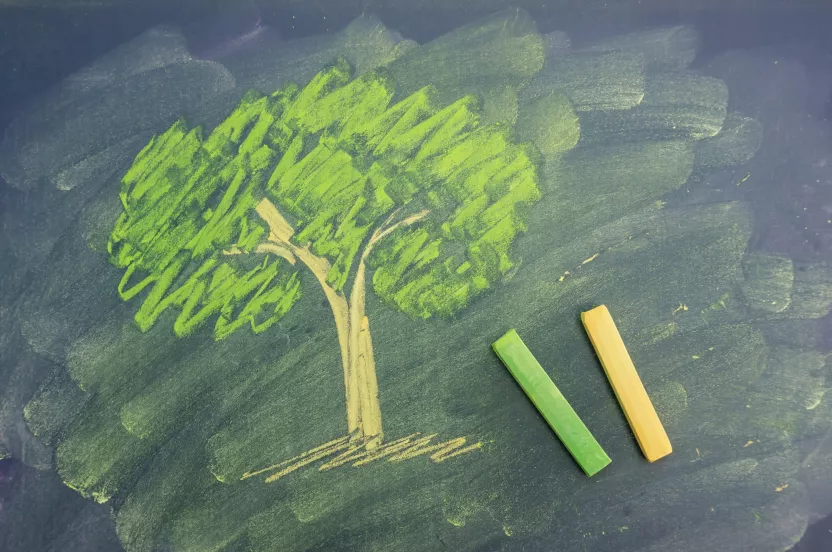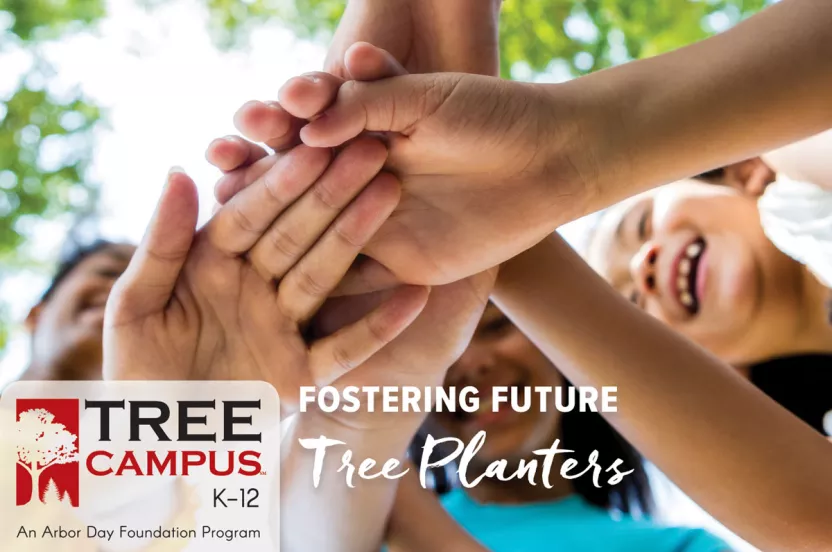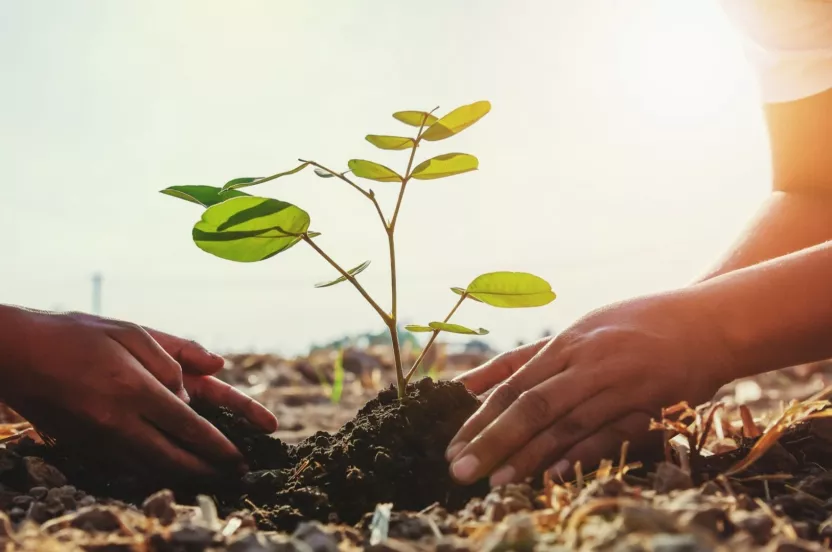Now live: The 2025 Canopy Report. Learn how Americans see trees. GET THE REPORT
Tree Campus® K–12: Inspiring a passion for trees at Wasatch High School
October 14, 2022
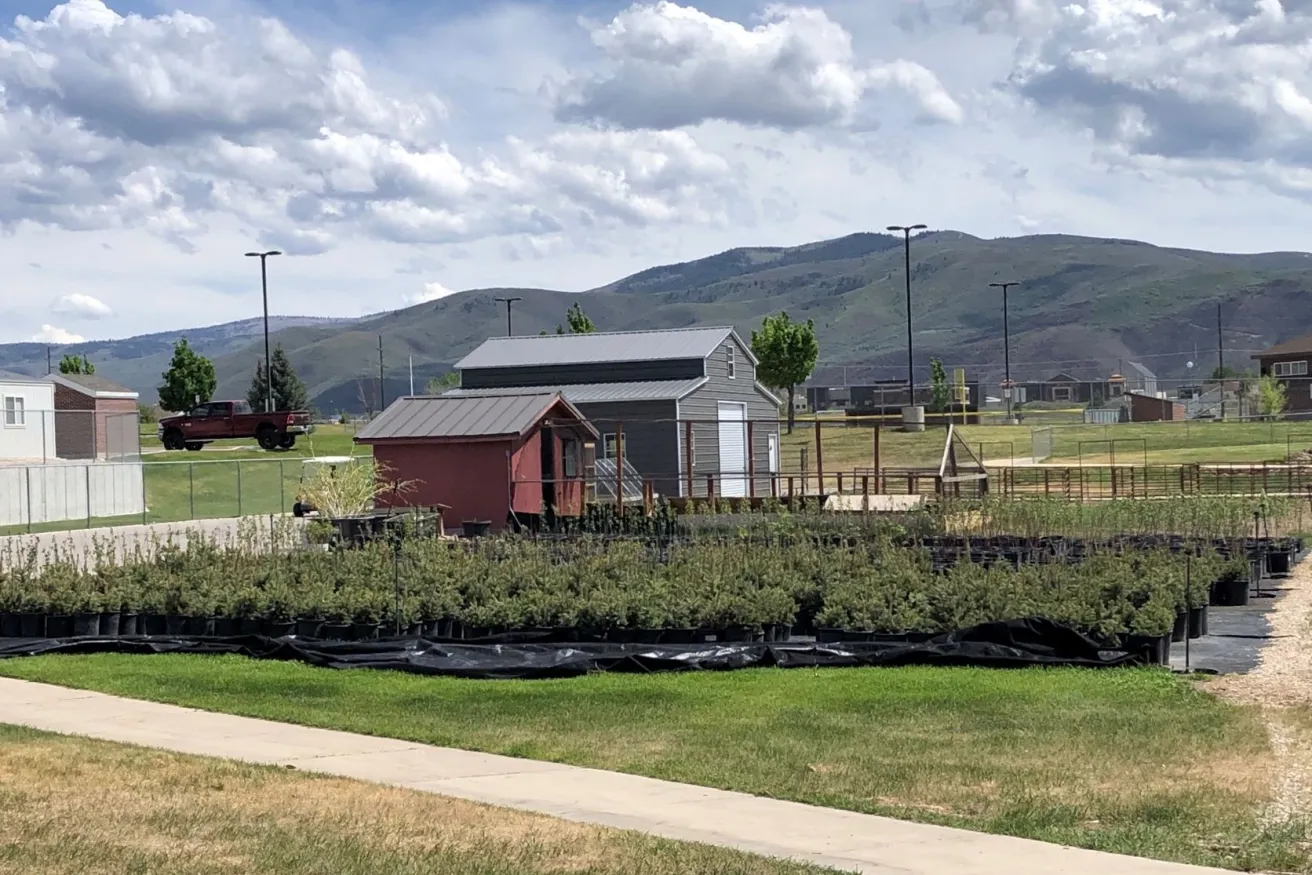
This year, the Arbor Day Foundation launched an exciting new program nationwide: Tree Campus K–12. The program focuses on engaging elementary, middle, and high school students in nature, and 67 schools were recognized in this inaugural year of the program.
To receive recognition, these schools needed to fulfill the requirements of four goals:
- Tree Campus Team
- Education Plan
- Hands-On Experience
- Arbor Day Observance
Even though each school was working toward the same set of goals, the ways in which they met them were unique. Teachers and students were finding their own ways to experience trees — in the classroom and in nature.
Big Ideas in Action
One school has really embraced the idea of engaging students in nature: Wasatch High School in Heber, Utah. As the community grew, the high school expanded to a second building that once served as the middle school. That meant the space between the buildings — formerly a basketball court, playground, etc., for younger students — needed a new purpose.
What the grounds manager saw as a problem (because, well, the grass just would not grow) was actually a golden opportunity in the eyes of teacher Matthew Zierenberg. As the FFA advisor and instructor of environmental agriculture for the school’s Center for Advanced Professional Studies, Matthew knew they could use the space as an outdoor classroom and entrepreneurial space for students.
Over the course of three years, the approximately 1-acre area became home to an orchard, aquaponics greenhouse, tree nursery, and barn. That’s right, the students brought a farm to life right at the school. It’s called IDEAL Farms, and it provides an opportunity for them to not only learn as they care for the land and animals but also gain experience operating a business.
“Every square inch is used in some way,” said Matthew. “We have a pavilion, which is my outdoor classroom. It was an old concrete slab, and we just threw a carport on it right against the building. Now I have a whiteboard on that wall, and I can take kids out to teach at the farm.”
Engaging with the Trees
One core part of IDEAL Farms is the tree nursery. Students grow native, drought-tolerant trees and shrubs onsite and sell them to local homeowners to plant in their yards.
Because having regular nursery hours would be difficult, the class created a self-serve tree store. The trees are put out on the corner with informational signs and QR codes to make online payment simple. People in the community can then shop for trees at their own convenience. Part of the earnings from these purchases are put toward wages for teens who work on the farm throughout the summer. The rest of the money is then set aside as scholarship dollars for them once they graduate.
As much as the community supports the students’ hard work, the students are supporting the community as well. They have participated in multiple tree plantings in wildlife management areas and along riverbanks, using trees and shrubs from the school nursery. “We filled up the back end of the school bus to haul the trees down to this wildlife management area. And it’s funny, I thought that the school bus driver was going to be just appalled that we were doing this. I thought the bus director or transportation director was going to be appalled. And they’re like, ‘This is the best use of a bus ever!’ We got the leaf blower and blew out the bus really quick afterwards.”
Planting and Caring for the Future
Throughout the school year, students have many opportunities to expand their knowledge about trees outside of the nursery. They have been mulching, pruning, and generally caring for the trees in the orchard and across the school’s property.
And Matthew has enjoyed helping them learn even the simplest things, like how to dig a hole. “I never thought I would have to teach a kid how to use a shovel, but this 16-year-old boy had no clue how to use the shovel and step on the back edge with his foot. He goes, ‘Oh, that’s what that little bump’s for?’ I mean, I never thought I’d have to teach that. But all of a sudden, they’re really engaged. They’re interested.”
An Emphasis on Partnerships
Matthew emphasizes the importance of support from community partners. “Having the mentors and having support from the community and having people saying, ‘Hey, this is a good idea. Let’s keep pushing!’ has made all the difference.” Their journey has been supported by Spring Creek Conservation (a local nursery), Utah Forest Fire and Lands, Sportsman’s for Fish and Wildlife, and Wasatch County Parks and Recreation.
This is just one of the many amazing stories from the first year of the Tree Campus K–12 program. As this program grows, it will mean more tree planters for generations to come.
